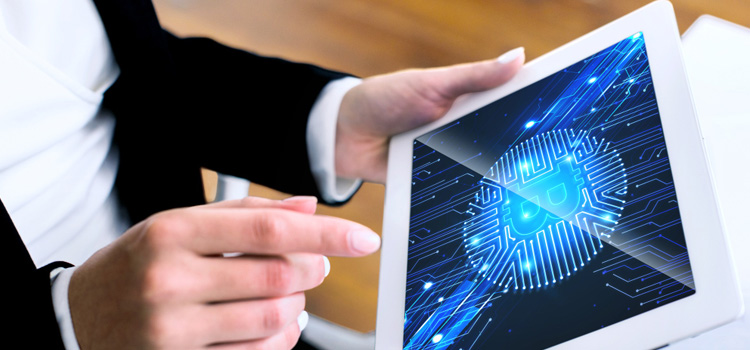The Intersection of Artificial Intelligence and Intellectual Property Rights
Posted On : December 20, 2023

Table of Contents
Introduction
In the vast tapestry of technological advancements, one thread weaves itself inextricably through the fabric of innovation: Artificial Intelligence (AI). Its ubiquity transcends boundaries, infiltrating industries, revolutionizing processes, and reshaping the landscape of creation. Yet, amid this technological marvel, a complex interplay emerges—one that entwines the brilliance of AI innovation with the intricate framework of intellectual property rights. The emergence of AI, characterized by machine learning algorithms, neural networks, and cognitive computing, has ushered in an era of unparalleled creativity and efficiency. It conjures art, composes music, writes prose, and innovates solutions with a prowess that challenges the conventional notions of human ingenuity. However, as AI algorithms autonomously generate content, a conundrum ensues—Who claims authorship? Who owns these AI-generated creations? Intellectual property rights, the bedrock upon which innovation is safeguarded and nurtured, now confront an existential quandary. Copyright laws, meticulously crafted to protect the fruits of human labor, grapple with the intangibility and autonomy of AI-generated content. Patents, the bastion of invention, strain under the weight of defining and attributing ownership to AI-created solutions. Trademarks, guardians of brand identity, navigate a digital landscape where AI seamlessly blurs the lines of originality. The entanglement of AI and intellectual property rights presents a tapestry of challenges and opportunities. It beckons us to redefine the constructs of ownership and authorship, urging lawmakers, innovators, and ethicists to navigate this uncharted terrain. This exploration delves into the complex interplay between AI and intellectual property rights. It traverses the realms of copyright, patents, trademarks, and ethical considerations, illuminating the intricacies and implications of this symbiotic relationship. As we embark on this journey, the convergence of technological advancement and legal frameworks calls for a delicate balance—one that fosters innovation while preserving the essence of intellectual property rights in the ever-evolving digital age.
Understanding AI Innovation and Intellectual Property
Artificial Intelligence (AI) has revolutionized the landscape of innovation, propelling industries into unprecedented realms of possibility. It encompasses various technologies, including machine learning, neural networks, and natural language processing, driving advancements across sectors such as healthcare, finance, entertainment, and more. However, this rapid evolution of AI presents complex challenges concerning intellectual property rights. One of the fundamental challenges in the realm of AI and intellectual property revolves around authorship and ownership. Unlike traditional innovations where human inventors are clearly identified, AI blurs these lines. AI systems, equipped with learning capabilities, generate outcomes without explicit human intervention, raising questions about who should own the resulting intellectual property. AI's ability to create music, art, literature, and other forms of creative content has sparked debates regarding copyright ownership. When an AI system autonomously generates content, it challenges traditional notions of authorship and copyright law. Determining the rightful owner of AI-generated works becomes a complex legal issue.
Existing intellectual property laws were designed with human creators in mind, not machines. As AI continues to evolve, there's a pressing need for updated legal frameworks to address the intricacies of ownership, authorship, and the protection of AI-generated innovations. Policymakers and legal experts are grappling with how to adapt copyright, patent, and trademark laws to accommodate the unique nature of AI-generated creations. Another aspect complicating the relationship between AI and intellectual property is the challenge of identifying the origins of innovation. In traditional patent or copyright applications, clear documentation of the inventor's contribution is required. However, in AI-generated innovations, tracing the specific inputs or algorithms responsible for the creation can be immensely intricate.
Moreover, the collaborative nature of AI development further complicates matters. Often, multiple entities, including researchers, developers, and organizations, contribute to AI systems. Determining the rightful owners or contributors becomes intricate when these collaborations result in innovative AI solutions. As the AI landscape continues to evolve, clarity in intellectual property rights becomes paramount. Clear guidelines and regulations are necessary to ensure fair attribution and protection for all stakeholders involved in the AI innovation process. Moreover, ethical considerations about AI's impact on ownership, creativity, and societal implications need to be at the forefront of legal discussions.
Copyright and AI: Ownership of Creations
Copyright law traditionally protects original works created by humans, but with the advent of AI, questions surrounding authorship and ownership have become increasingly complex. AI's ability to generate content autonomously raises fundamental questions about who should be credited as the creator and rightful owner of AI-generated works. AI systems can autonomously generate art, music, literature, and other creative works without direct human involvement. This challenges traditional notions of authorship and raises uncertainties about who should be credited for the creation when humans provide input or train AI algorithms, determining the extent of human contribution to an AI-generated work becomes crucial in defining ownership. Legal frameworks often struggle to differentiate between human creativity and AI's computational processes. The lack of clear guidelines leads to disputes over ownership rights. Should it be the programmer, the organization that owns the AI, or the AI system itself considered the owner of the generated content?
Patents and AI: Inventing AI Solutions
The intersection of patents and artificial intelligence presents a unique challenge within the realm of intellectual property. As AI continues to evolve, creating new solutions, algorithms, and processes, the traditional patent framework faces complexities in defining ownership, inventorship, and the patentability of AI-generated inventions. One of the primary hurdles in patenting AI lies in the definition of inventorship. Traditionally, patents have been granted to human inventors, recognizing their innovation and creativity. However, with AI contributing significantly to the invention process, the question arises: can AI systems be considered inventors? AI-generated solutions often stem from complex algorithms and machine learning models that can develop novel processes or products without direct human intervention. This raises debates about whether an AI system's actions equate to traditional inventorship, challenging the foundational principles of patent law.
Trademark and AI: Branding in the Digital Sphere
In the rapidly evolving landscape of AI, branding faces a unique set of challenges and opportunities. Trademarks, designed to protect brand identities, encounter new complexities with AI-driven innovations. AI technology is capable of generating content, from logos to slogans, impacting brand identity creation. Automated systems can design logos, generate advertising copy, or even create brand-related content. However, this raises questions about the origin of these elements and their compliance with trademark laws. Who owns the rights to AI-generated logos or slogans? Can these be considered original creations or derivative works? Registering trademarks for AI-generated assets introduces nuances in the application process. The trademark office traditionally requires human creators or entities to apply for registration. However, when AI systems autonomously generate content, determining the entity or individual entitled to trademark rights becomes challenging. There's a need for clarification on the registration process and ownership of trademarks for AI-generated assets.
Conclusion
The integration of artificial intelligence into our daily lives has redefined innovation, challenging traditional notions of intellectual property rights. As AI continues to evolve, the intricate relationship between technological advancement and legal frameworks governing intellectual property demands meticulous consideration. Throughout this exploration, it becomes evident that the landscape of intellectual property rights is undergoing a profound transformation in the wake of AI's capabilities. Copyright laws face the daunting task of adapting to accommodate AI-generated content, blurring the lines of authorship and ownership. Patent systems confront the complexities of granting rights to AI-generated inventions, raising fundamental questions about inventorship. Trademark protections navigate the intricacies of maintaining brand identity in an AI-dominated digital sphere. Ethical concerns add another layer of complexity. The ethical implications of AI-generated content challenge us to reconsider established norms of ownership and creation, urging the formulation of ethical guidelines to guide AI innovation responsibly. Looking ahead, the future of intellectual property rights in the context of AI hinges upon our ability to strike a balance between fostering innovation and safeguarding creators' rights. Policymakers and legal experts face the imperative task of devising adaptive and forward-thinking frameworks that acknowledge AI's transformative power while upholding the principles of fairness, attribution, and protection. In this digital age propelled by AI, the synergy between technological advancement and legal adaptation will be pivotal. Embracing change while preserving the integrity of intellectual property rights will not only nurture innovation but also uphold the values of creativity, ownership, and fair use in a rapidly evolving landscape.
























